People / OCNC2015
Lecturers
- Netta Cohen (University of Leeds, UK)
- Erik De Schutter (OIST)
- Kenji Doya (OIST)
- Eugene Izhikevich (Brain Corporation, USA)
- Bernd Kuhn (OIST)
- Peter Latham (Gatsby Unit, UCL, UK)
- Yukio Nishimura (National Institute for Physiological Sciences, Japan)
- Steve Prescott (University of Toronto, Canada)
- Jonathan Rubin (Department of Mathematics and Center for the Neural Basis of Cognition, USA)
- Jackie Schiller (Technion, Israel)
- Greg Stephens (OIST)
- Taro Toyoizumi (RIKEN BSI, Japan)
- Xiao-Jing Wang (New York University, USA)
- Yoko Yazaki-Sugiyama (OIST)
- Wako Yoshida (NICT, CiNet, Japan)
Tutors
- Romain Cazé (Imperial College London, UK)
- Tom Close (OIST)
- Aki Funamizu (OIST)
- Sungho Hong (OIST)
- Milad Lankarany ((University of Toronto, Canada)
- Adam Ponzi (OIST)
- Yu Shimizu (OIST)
- Martin Spencer (Vision Institute, Paris, France)
- Sacha van Albada (Jülich Research Centre, Germany)
- Fleur Zeldenrust (University of Amsterdam, Netherlands)
Participants
- Tara Arbab
- Jacopo Bono
- Torsten Bullmann
- Parul Chachra
- Manisha Chawla
- Philip Coen
- Ellese Cotterill
- Mingwen Dong
- Christian Laut Ebbesen
- Claire Hales
- David Halpern
- Katia Harle
- Bettina Hein
- Naoki Hiratani
- Derek Howard
- Lars Hunger
- Ivana Kajic
- Sander Keemink
- Veronika Koren
- Elena Kreutzer
- Ori Maoz
- Sara Pinto dos Santos Matias
- Rebecca Audrey Mease
- Daisuke Miyamoto
- Camilla Nord
- Toben Ott
- Vani Rajendran
- Nergis Tomen
- Daniel Udvary
- Gido van de Ven
- Tugce Yildizoglu
- Chen Yin
Lecturers
Netta Cohen
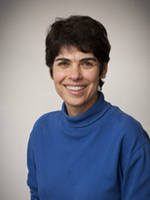
| Affliation |
University of Leeds, UK |
|---|---|
| URL |
http://www.comp.leeds.ac.uk/netta/ |
|
Brief Bio/ Message |
Netta Cohen is Professor of Complex Systems at the University of Leeds. She received her BSc in Applied Physics from Columbia University, and her MSc and PhD in Physics from the Technion before joining the School of Computing at the University of Leeds in the UK in 2002. A recurring theme in her research concerns the ability of biological systems to generate robust and adaptive function (often in a system that is embodied and situated in a physical environment) through the interaction between the components of the system and its environment. In this context, some of her recent work has focused on the neural control of behavior in a small roundworm called C. elegans, using a combination of experimental approaches and computational neuroscience. |
Erik De Schutter

| Affliation |
OIST |
|---|---|
| URL |
https://groups.oist.jp/cnu |
|
Brief Bio / Message |
I have been teaching for more than 15 years at European CNS summer schools and was part of the last eight OCNCs. It is always exciting to meet the diverse groups of highly motivated young scientists attending our courses. Summer courses have an important function in teaching computational methods and approaches, and in establishing social networks among the participants. Ideally every neuroscientist, including experimentalists and clinicians, should attend a CNS course because computational methods have become essential tools to understand the complex systems we are studying. There is a broad range of modeling approaches available. I have specialized in data-driven, bottom-up methods that are more accessible to experimentalists because they are mainly parameter driven. This includes large compartmental models of neurons with active dendrites, networks with realistic connectivity using conductance based neuron models and stochastic reaction-diffusion models of molecular interactions. I will not have time to present much of our research, but feel free to ask me or my collaborators about our work! Most of the work in my lab concerns the cerebellum, including its main neuron the Purkinje cell. |
Kenji Doya
| Affliation |
OIST |
|---|---|
| URL |
https://groups.oist.jp/ncu |
|
Brief Bio / Message |
Kenji Doya took BS in 1984, MS in 1986, and Ph.D. in 1991 at U. Tokyo. He became a research associate at U. Tokyo in 1986, U. C. San Diego in 1991, and Salk Institute in 1993. He joined ATR in 1994 and became the head of Computational Neurobiology Department, ATR Computational Neuroscience Laboratories in 2003. In 2004, he was appointed as the principal investigator of Neural Computation Unit, Okinawa Institute of Science and Technology (OIST) and started Okinawa Computational Neuroscience Course (OCNC) as the chief organizer. As OIST re-established itself as a graduate university in 2011, he became a professor and the vice provost for research. He serves as the co-editor in chief of Neural Networks from 2008. He is interested in understanding the functions of basal ganglia and neuromodulators based on the theory of reinforcement learning. |
Eugene Izhikevich
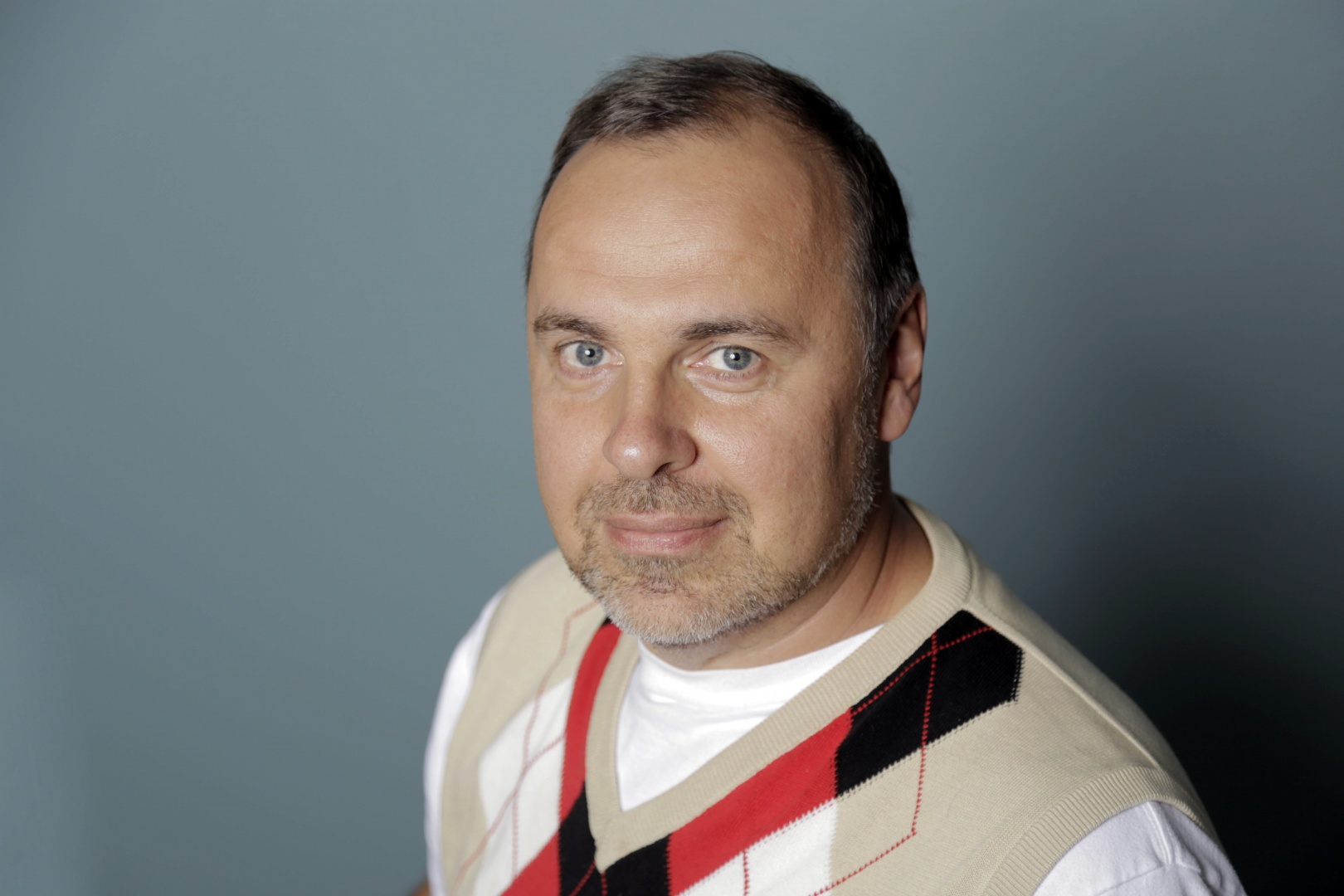
| Affliation |
Brain Corporation, USA |
|---|---|
| URL |
http://www.braincorporation.com/team-partners/dr-eugene-m-izhikevich/ |
|
Brief Bio / Message |
Dr. Eugene M. Izhikevich is a computational neuroscientist known for his contributions into the theory of nonlinear dynamical systems and spiking networks. He pioneered a novel approach to spiking neurons that combined biologically plausibility and implementation efficiency, which allowed him in 2005 to simulate the largest thalamo-cortical model having the size of the human brain, i.e., the same number of neurons and synapses as in human brain. Presently, Dr. Izhikevich is the Chief Executive Officer of Brain Corporation, San Diego, CA, which he founded in 2009 to build a biologically detailed spiking model of the visual system and motor control (http://www.braincorporation.com). Before that, he was with The Neurosciences Institute in San Diego, where he founded Scholarpedia - the peer-reviewed open-access encyclopedia (http://www.scholarpedia.org). Eugene is the editor-in-chief of Encyclopedia of Computational Neuroscience and Encyclopedia of Dynamical Systems. Academic webpage is at http://www.izhikevich.org. |
Bernd Kuhn
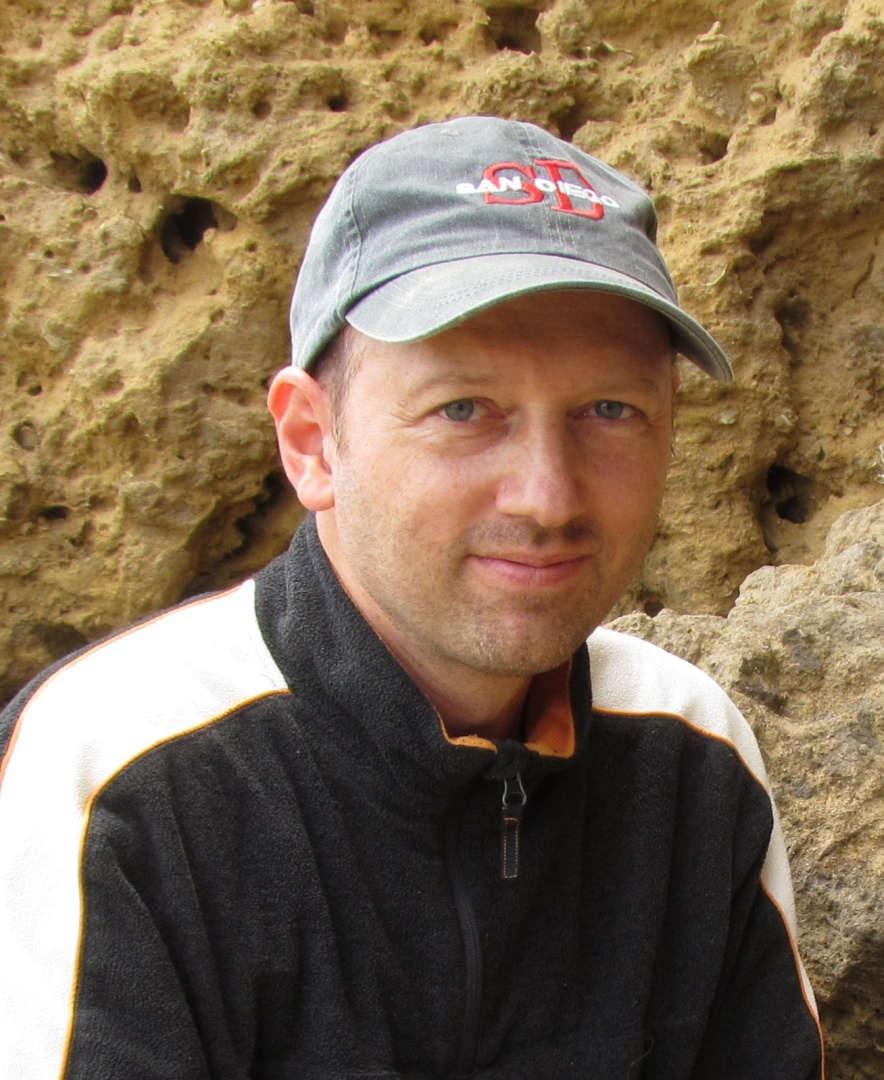
| Affliation |
OIST |
|---|---|
| URL |
https://groups.oist.jp/onu |
|
Brief Bio / Message |
I studied physics at the University of Ulm, Germany. For my diploma and PhD I moved to the Max Planck Institute of Biochemistry, Martinsried, Germany, focusing on the development of novel voltage-sensitive dyes and their application in cultured neurons. To optimize voltage imaging and to use voltage-sensitive dyes with two-photon excitation I accepted a postdoctoral fellowship at the Max Planck Institute for Medical Research, Heidelberg, Germany. In my second postdoc position at Princeton University, NJ, USA, I made viral vectors delivering the gene of calcium indicators and used them for in vivo imaging in the cerebellum. Additionally, I used voltage-sensitive dyes for in vivo two-photon imaging in barrel cortex of the mouse. Since 2010 I work at OIST (Optical Neuroimaging Unit). We mainly work on in vivo voltage and calcium two-photon imaging and methods development for neuroscience. |
Peter Latham
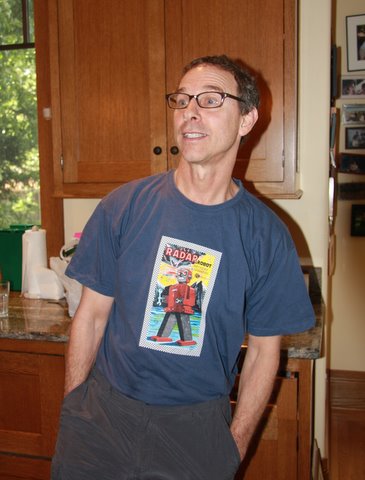
| Affliation |
Gatsby Unit, UCL, UK |
|---|---|
| URL |
http://www.gatsby.ucl.ac.uk/~pel/ |
|
Brief Bio / Message |
I was a physicist for a large chunk of my career (undergrad, grad and postdoc), but in 1996 I switched to theoretical neuroscience. After 1.5 years at NIH and 6 at UCLA, in 2004 I landed a faculty job at the Gatsby Computational Neuroscience Unit, UCL, where I have been ever since. I am interested in understanding how biologically realistic networks carry out computations, with a focus on probabilistic inference. This work borrows heavily from fields such as neural coding and the dynamics of networks of spiking neurons. |
Yukio Nishimura
| Affliation |
National Institute for Physiological Sciences, Japan |
|---|---|
| URL |
http://www.nips.ac.jp/eng/research/researcher/assoc/post_84.html |
|
Brief Bio / Message |
Yukio NISHIMURA received his B.S. in physical education from NIHON University in 1997, his M.S. in education from Graduate school in Yokohama National University in 1998 and his Ph.D. in Neurophysiology from Graduate School for Medicine, Chiba University in 2003. He went to National Institute for Physiological Sciences, Okazaki, Japan and then the University of Washington, Seattle, USA for postdoctoral work in neuroscience. He worked as a researcher in Japan Science and Technology Agency 2009-2015. From 2011, he is currently Associate Professor in the Department of Developmental Physiology, and Associate Professor, The Graduate University for Advanced Studies [SOKENDAI] in Japan. His overall research has concerned the neural control of limb movement in human and non-human primates. His interest in this field is motivated by its relevance to clinical issues of motor impairment and recovery of function following central nervous system damage. Abnormal patterns of muscle activation following brain and spinal cord injury contribute to weakness and loss of coordination. We still do not understand the neural mechanisms of motor deficit and of natural or therapy-induced restoration of function following lesions of the central nervous system. Our research will advance our understanding of the capacity of lesioned motor systems for neural plasticity and adaptation, and suggest ways to exploit this potential for improved function. Most recently, his group has developed a recurrent brain-computer interface that can record activity of cortical cells during free behavior and convert this activity in real time to stimulation of cortex, spinal cord or muscles. This so-called “artificial neural connection” creates a continuously operating artificial feedback loop that the brain can learn to incorporate into behavior. This capacitie of the recurrent brain-computer interface have promise for many basic research and clinical applications. |
Steve Prescott
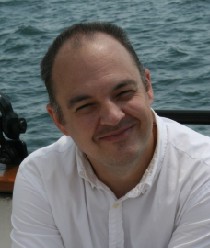
| Affliation |
University of Toronto, Canada |
|---|---|
| URL |
http://www.prescottlab.ca/ |
|
Brief Bio / Message |
My research focuses on biophysical factors that affect neural coding. Trained originally as an electrophysiologist (MD, PhD McGill 2005), I went to Terry Sejnowski's lab for my post-doc to focus on computational neuroscience. I established my own lab at the University of Pittsburgh in 2008 before moving to Toronto in 2012. My lab combines in vitro electrophysiology (including a lot of dynamic clamp) with in vivo electrophysiology and optical approaches (calcium imaging and optogenetics) together with computer simulations and nonlinear dynamics. Significant research effort is directed towards deciphering the causes and consequences of differences in spike initiation dynamics. We are particularly interested in how those issues relate to somatosensory processing and neuropathic pain. |
Jonathan Rubin
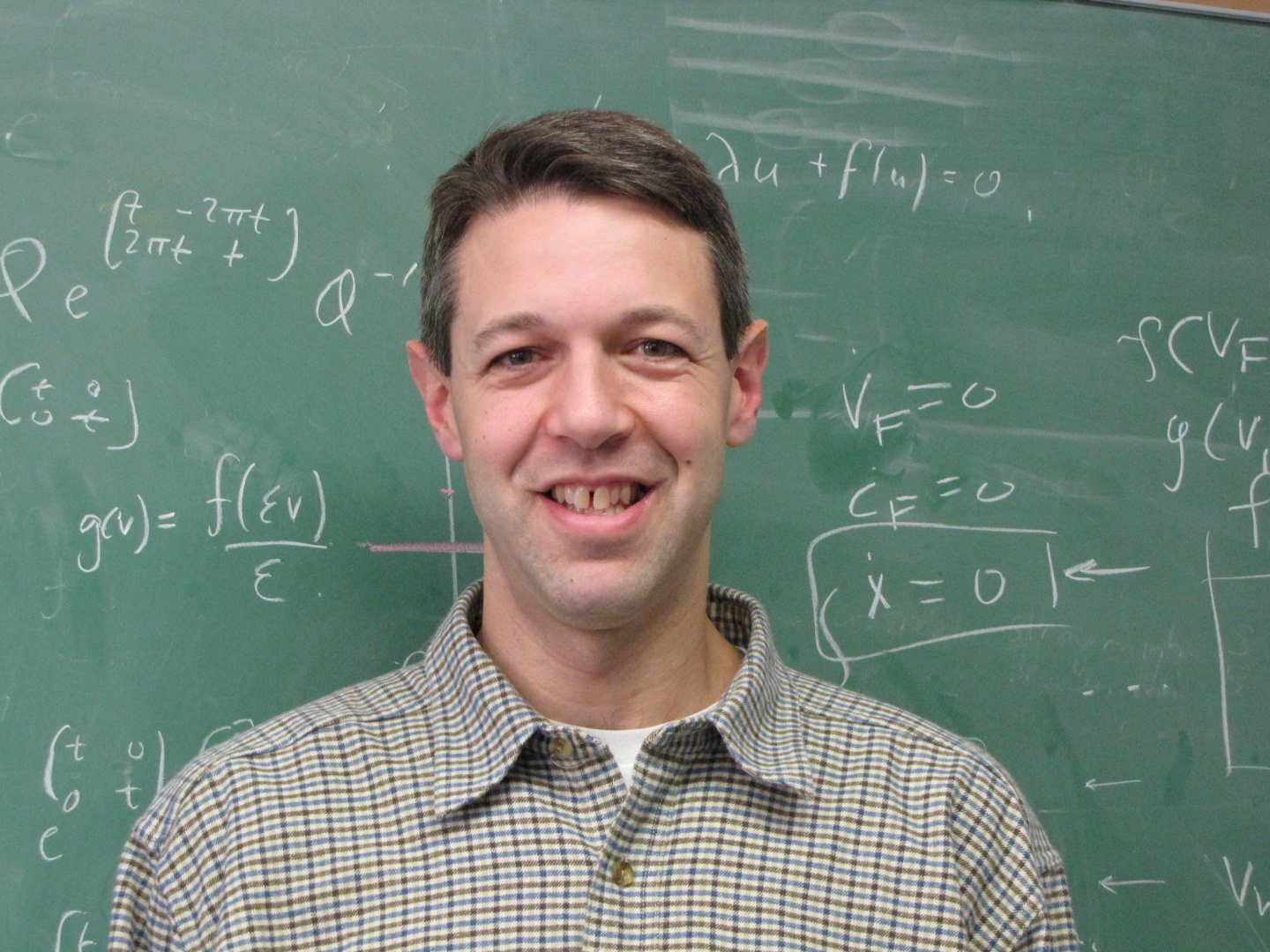
| Affliation |
Department of Mathematics and Center for the Neural Basis of Cognition, USA |
|---|---|
| URL | |
|
Brief Bio / Message |
Dr. Jonathan Rubin is a Professor in the Department of Mathematics and Department of Computational and Systems Biology at the University of Pittsburgh. He is also a Graduate Faculty Member, a Center for Neuroscience Graduate Training Faculty Member, and a Member of the Center for the Basis of Neural Cognition at the University of Pittsburgh. Dr. Rubin received his PhD in Applied Mathematics from Brown University, Providence, Rhode Island. Dr. Jonathan Rubin's research interests include:
Dr. Rubin is an Editorial Board Member for Biological Cybernetics, 2006-present; Mathematical Biosciences, 2010-present; SIAM Journal of Applied Mathematics, 2012-present; and Chaos, Solitons, and Fractals, 2013-present. He is on the Scientific Advisory Committee of the Mathematical Biosciences Institute (2013-present) and has served as Chair and Program Director of the SIAM Special Interest Group on the Life Sciences. In addition, he is a member of the Society for Industrial and Applied Mathematics, 1991-present (Activity Group in Dynamical Systems, 1993-present; Activity Group in Life Sciences, 2000-present), the Society for Neuroscience, 2005-present, and the Mathematical Association of America, 1990-1993, 1997-1998, 2001-present. |
Jackie Schiller
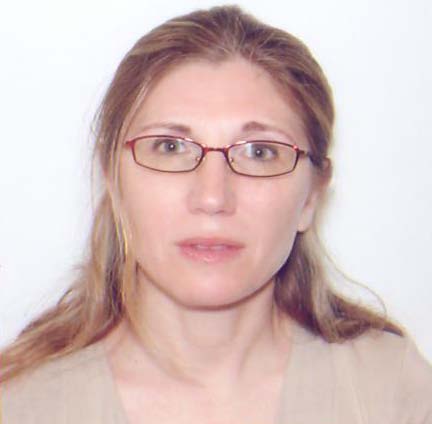
| Affliation |
Technion, Israel |
|---|---|
| URL |
http://neuroscience.technion.ac.il/researcher/7 |
|
Brief Bio / Message |
Since 2000, I'm running a lab at the Technion Medical School Haifa Israel. I received my PhD at the Hebrew University characterizing the single channels found in cholinergic axon terminals of the Torpedo electric fish. Later I join Sakmann's lab in Heidelberg Germany at an exciting period when dendrites were just started to be investigated with novel imaging and electrophysiological methods. I did a second post doc period with David Clapham at the US where I developed combined uncaging and imaging methods to activate and record from dendrites and spines in cortical slices. Presently I interested in nonlinear dendritic mechanisms and their potential role in information processing in-vivo. I'm also interested in differential plasticity mechanisms expressing at the different portions of the dendritic tree. In recent years we are mostly doing in-vivo two photon imaging from dendrites, and soma both in anaesthetized and awake behaving mice in an attempt to decipher the cellular mechanism underlying sensory-motor processing in the cortex. |
Greg Stephens

| Affliation |
OIST |
|---|---|
| URL |
https://groups.oist.jp/bptu |
|
Brief Bio / Message |
My research in theoretical biophysics is focused on the interface of physics and biology, broadly defined, and I explore a diverse set of problems ranging from the behavior of small organisms to the natural dynamics of human cognition. In all of my efforts I combine cross-disciplinary experimental collaborations with ideas drawn broadly from such areas as statistical physics, dynamical systems and information theory to seek unifying principles and simple, functional understanding in living systems. Trained in quantum gravity and early universe cosmology, as I switched focus, I was fortunate to experience a course such as this one and I hope that you will enjoy a similarly remarkable experience. |
Taro Toyoizumi
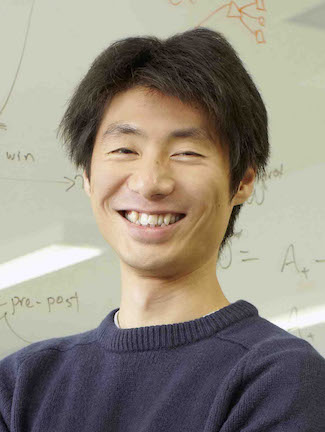
| Affliation |
Riken BSI, Japan |
|---|---|
| URL |
http://www.brain.riken.jp/en/faculty/details/46 |
|
Brief Bio / Message |
PhD from The University of Tokyo in 2006 Postdoc at Center for Theoretical Neuroscience, Columbia University, 2006-2010 Postdoc at RIKEN Brain Science Institute, 2010-2011 Laboratory Head at RIKEN Brain Science Institute, 2011- |
Xiao-Jing Wang
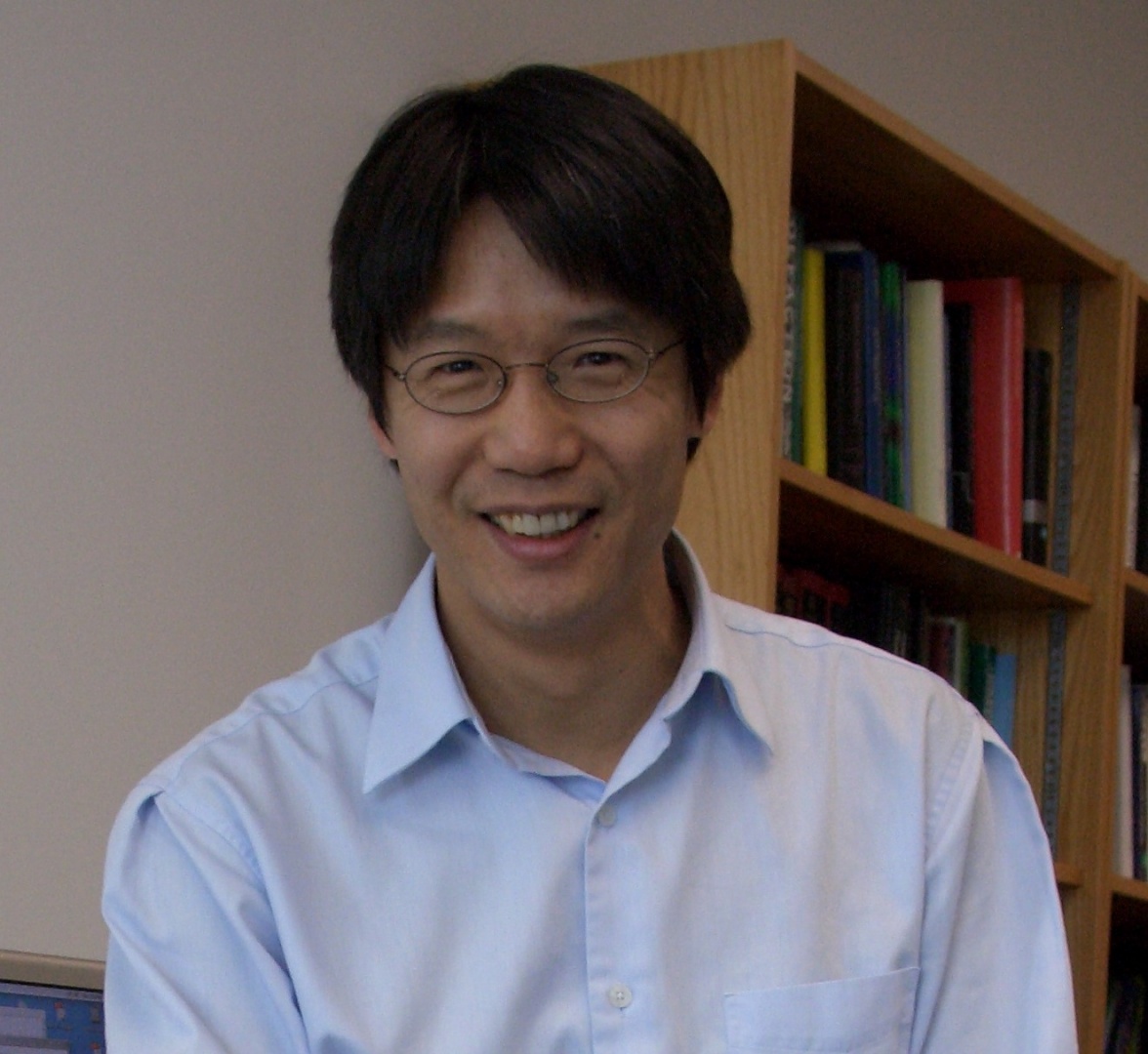
| Affliation |
New York University, USA |
|---|---|
| URL |
http://www.cns.nyu.edu/wanglab/ |
|
Brief Bio / Message |
Xiao-Jing Wang is Global Professor of Neural Science, Adjunct Professor of Physics and Mathematics, and co-director of the Swartz Center for Theoretical Neuroscience at New York University. Before he joined NYU in 2012, he was Professor of Neurobiology at Yale University. His areas of research interest are the neural circuit mechanisms of decision-making and other higher cognitive functions, as well as their deficits associated with mental illness. Currently his lab is developing large-scale brain circuit models for flexible behavior. He was the initiator of Computational and Cognitive Neuroscience International Summer School, the first one took place in 2012 and it has continued annually in China. Lab website: http://www.cns.nyu.edu/wanglab/ |
Yoko Yazaki-Sugiyama
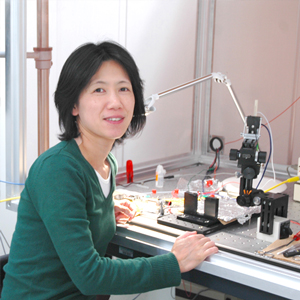
| Affliation |
OIST |
|---|---|
| URL |
https://groups.oist.jp/nmcpu |
|
Brief Bio / Message |
My research interest is to understand the brain function which allows animal to behave properly. Our research unit currently working on the neuronal mechanism of the developmental ‘critical period’ where the neurons are plastic and actively shaping their network by using bird song learning. Why do birds learn to sing only in the limited time window ? We are exploring the mystery of birds’ brain to answer the questions. |
Wako Yoshida
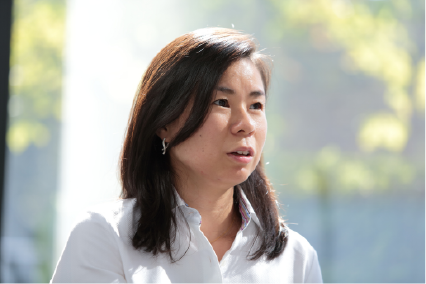
| Affliation |
NICT, CiNet, Japan |
|---|---|
| URL |
http://cinet.jp/english/ |
|
Brief Bio / Message |
I am a cognitive neuroscientist studying human decision making and social interaction. My research integrates computational modeling and brain imaging experiments to develop mechanistic accounts of brain function, with a particular focus on the function of the prefrontal cortex. I did my Ph.D in Nara Institute of Science and Technology (NAIST) with Shin Ishii, and then worked at Wellcome Trust Centre for Neuroimaging in University College London (UCL) as a post-doc with Karl Friston and Ray Dolan. I am a Senior Researcher at ATR (Kyoto, Japan) and Center for Information and Neural Networks (CiNet, Osaka) and currently working at Cambridge University as a visiting researcher. |
Tutors
Romain Cazé

| Affliation |
Imperial College London, UK |
|---|---|
|
About yourself /Message |
Dear all, In a few words, I will try to share my enthusiasm, introduce myself, my questions, and the things I like to think about. My PhD focused on the role of dendrites in single neuron computation. I was fortunate to have Boris Gutkin as supervisor and to stumble upon a discovery during my thesis. I discovered something about dendrites -which collect inputs to a neuron- and this discovery is forcing us to alter our view on the computational capacity of a single neuron. I showed that, even when they are modelled as passive comparments, dendrites enable neurons to compute linearly non-separable functions (on top of the existing capacity of neurons to already compute non-linear functions like the logic AND. (Yes, I know non-linearly separable functions and non-linear functions are different sets of functions!) However, I am not yet satisfied, and many questions remain. I have a realistic outlook: neither my post-doc in London with Simon Schultz nor my future career in research will be enough to answer these questions. How does our brain store memories? (please do not answer synaptic plasticity). Where does our creativity come from? These are two questions near to my heart. This is maybe why I love doing science. Because I love asking questions, sometimes even more than answering them. So be aware that I will inspect your hidden assumptions and will discuss about them around machines that can distribute beer. With that being said, I am looking forward to meet you all in Okinawa, Best, Romain If you want to know more about my work: www.romaincaze.wordpress.com You can also follow me on twitter @romaincaze |
|
Expertise |
Boolean Algebra Python NEURON |
Tom Close
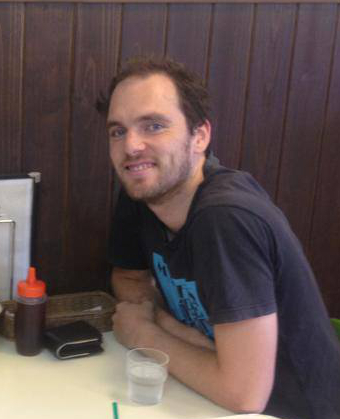
| Affliation |
OIST |
|---|---|
|
About yourself /Message |
Welcome to Okinawa everyone! I am interested in how, in many cases, we are able to respond to complex dynamics in our environments more elegantly than custom-built robotics despite typically longer transmission delays and less powerful motors (i.e. muscles). This has led me to construct detailed models of cerebellar networks in order to help understand how some of the dynamics we encounter are represented in their distinct cellular mechanisms and network structures. |
|
Expertise |
Scientific interests: I am interested in how the central nervous system represents and interacts with the dynamics of its environment (internal and external to the body), and in particular the role played by the cerebellum. However, in the process of building biophysically detailed models of the cerebellar network I have become heavily involved in the development of NineML (a model description language for neuroscience) and associated software tools in order to robustly manage the complexity of such models.
Scientific expertise: - Formalising common features of neuronal/network simulations into a model description language for neuroscience (http://nineml.net) - Automated reduction of large multi-compartmental models by incremental retuning with evolutionary algorithms (http://www.biomedcentral.com/1471-2202/15/S1/P178) - Bayesian inference of white matter tracts from diffusion MRI using MCMC sampling methods.
Software expertise: Python, C/C++, MATLAB, NEURON, NEST, MPI, Git |
Akihiro Funamizu
| Affliation |
OIST |
|---|---|
|
About yourself /Message |
Welcome to Okinawa!! I am interested in the brain mechanism of decision making. I am currently working on the modeling of rodents behaviors or neural circuits with reinforcement learning and Bayesian theorem. I have an experience of extra-cellular recording and two-photon microscopy in awake behaving mice. |
|
Expertise |
Scientific interests: Decision making, Perceptual learning, Neural implementation of machine learning (e.g., reinforcement learning or Bayesian theorem) Paper: Funamizu A. et al., Eur J Neurosci, Vol.35(7), pp.1180-1189, 2012. Scientific expertise: Reinforcement learning and Bayesian theorem. These algorithms are used to model the behaviors of humans and animals.Making a behavioral task from a machine-learning point of view Expert of brain areas: Auditory cortex, Parietal cortex, Basal Ganglia circuit. Neuroscience topics: Two-photon microscopy, Extra-cellular recording Software expertise: Matlab |
Sungho Hong
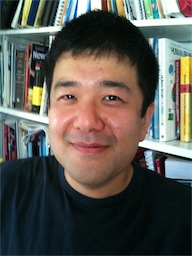
| Affliation |
OIST |
|---|---|
|
About yourself /Message |
I am a researcher in the Erik De Schutter's lab at OIST, and so I live and work in Okinawa. I am generally interested in things in the domain of biophysics/cellular physiology, and have been trying to understand how they contribute to what is happening in the higher level such as neural networks and so on. I look forward to meeting you all soon! |
|
Expertise |
I have expertise in detailed modeling of neurons with ion channels and intracellular ion dynamics, mainly in the NEURON platform. I also have some experience in developing data analysis techniques by using various statistical modeling frameworks such as LN model, compressive sensing, spectral clustering, and so on. The brain region that I am mostly familiar with is the cerebellar cortex. About computational tools, I write my simulations mostly in NEURON, and do my data analysis in Python and Matlab. |
Milad Lankarany

| Affliation |
Dept of Physiology, U of Toronto & Dept of Neuroscience, Hospital for Sick Children |
|---|---|
|
About yourself /Message |
I am a postdoc at Dept of Neuroscience and Mental Health at SickKids Hospital. I finished my PhD in 2013, in Electrical Eng. My main focus these days is on Neural decoding/ encoding using the recent theory of Multiplexing. My main research interests are in Statistical Signal Processing, Theoretical Neuroscience and any junction linking advanced information theories to neural science. I have started learning electrophysiology including, V- & I- clamping as well as dynamic clamping during the first year of my post-doc. After participating in three prestigious summer schools on Computational Neuroscience (see in my webpage), I am happy that I have the opportunity to serve as a tutor at OCNC 2015. |
|
Expertise |
Research Interest: - Theoretical & Computational Neuroscience. - Signal Processing & Information Theory.
Selected Publications: 1- Ayah Khubieh, Stephanie Ratte, Milad Lankarany, and Steven A. Prescott (2015), “Regulation of Cortical Dynamic Range by Background Synaptic Noise and Feed-Forward Inhibition,” Submitted. 2- Stephanie Ratte, Milad Lankarany, Young-Ah Rho, Adam Patterson and Steven A. Prescott (2015), “Subthreshold membrane currents confer distinct tuning properties that enable neurons to encode the integral or derivative of their input,” Front. Cell. Neurosci, 8:452. 3- Milad Lankarany, W.-P. Zhu and M. N. S. Swamy (2014), “Joint Estimation of States and Parameters of Hodgkin Huxley Model using Kalman Filtering,” Neurocomputing, Vol. 136. 4- Milad Lankarany, W.-P. Zhu, M. N. S. Swamy and Taro Toyoizumi (2013), “Inferring Trial-to-Trial Excitatory and Inhibitory Synaptic Inputs from Membrane Potential using Gaussian Mixture Kalman Filtering,” Front. Comput. Neurosci, 7:109. |
Adam Ponzi
| Affliation |
OIST |
|---|---|
|
About yourself /Message |
Many areas of the brain show spatiotemporally complex dynamics. Coherent cell assembly dynamics, multiple time scale oscillations and cross-frequency phase coupling between different brain areas have been ubiquitously observed in cortex, hippocampus, the basal ganglia and the cerebellum. Their dysfunction is fundamental in many neuronal pathologies such as schizophrenia and epilepsy. Yet how these complex dynamical patterns arise and why they are necessary for normal cognitive brain function remains mysterious. My goal is to understand how brain function, in particular perception, action sequence generation, rhythm production and language emerges from the spatiotemporally chaotic dynamical activity patterns generated by the spiking networks of the brain. |
|
Expertise |
Networks, dynamical systems and stochastic processes applied to modeling of cognitive brain function. Numerical analysis and simulation techniques. |
Yu Shimizu
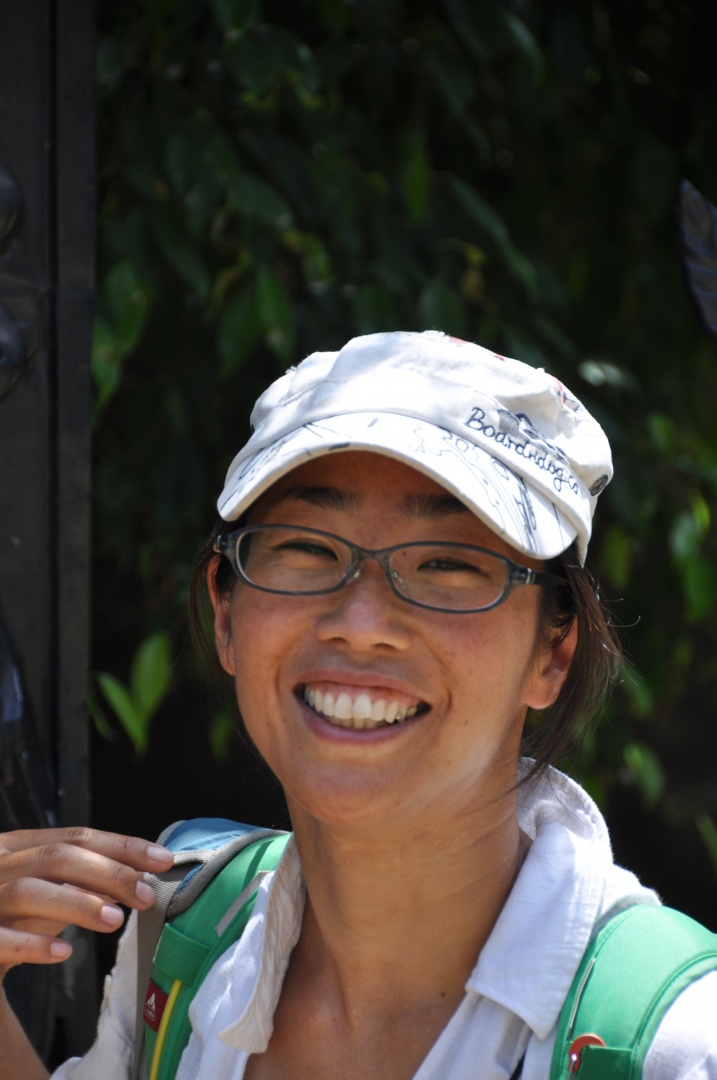
| Affliation |
OIST |
|---|---|
|
About yourself /Message |
Hello in Okinawa! I have been on this island for three years now and indulge in the natural environment. Having grown up in land locked Austria, it's quite a change to have that much water around 24/7. My background is biology and applied mathematics with emphasis on MRI and biomedical applications. Currently I work on the automated diagnosis of depression based on (f)MRI, behaviour data and biomarkers using machine learning algorithms. Looking forward to meeting you! |
|
Expertise |
Signal and Image Processing in Biomedical Applications Machine Learning (f)MRI physics and data analysis |
Martin Spencer
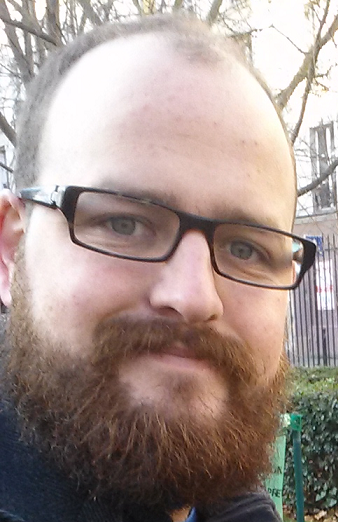
| Affliation |
Institut de la vision |
|---|---|
|
About yourself /Message |
I am interested in sensory information representation in models of individual neurons and small networks of neurons. I have completed research in 'octopus cell's' that in mammals receive input from the auditory nerve and entrain to clicks and glottal pulses in speech. I am currently undertaking research in the representation of interaural level differences in the auditory brainstem. |
|
Expertise |
I have completed research in computational neuroscience using Neuron, Matlab, and Python. My main expertise is in Matlab, and Python. I have mainly focused on: 1. Hodgkin-Huxley models with a small number of compartments, and Leaky Integrate-and-Fire models. 2. Small feed-forward networks of individual neurons. 3. Sensory information representation in the auditory brainstem. |
Sacha van Albada
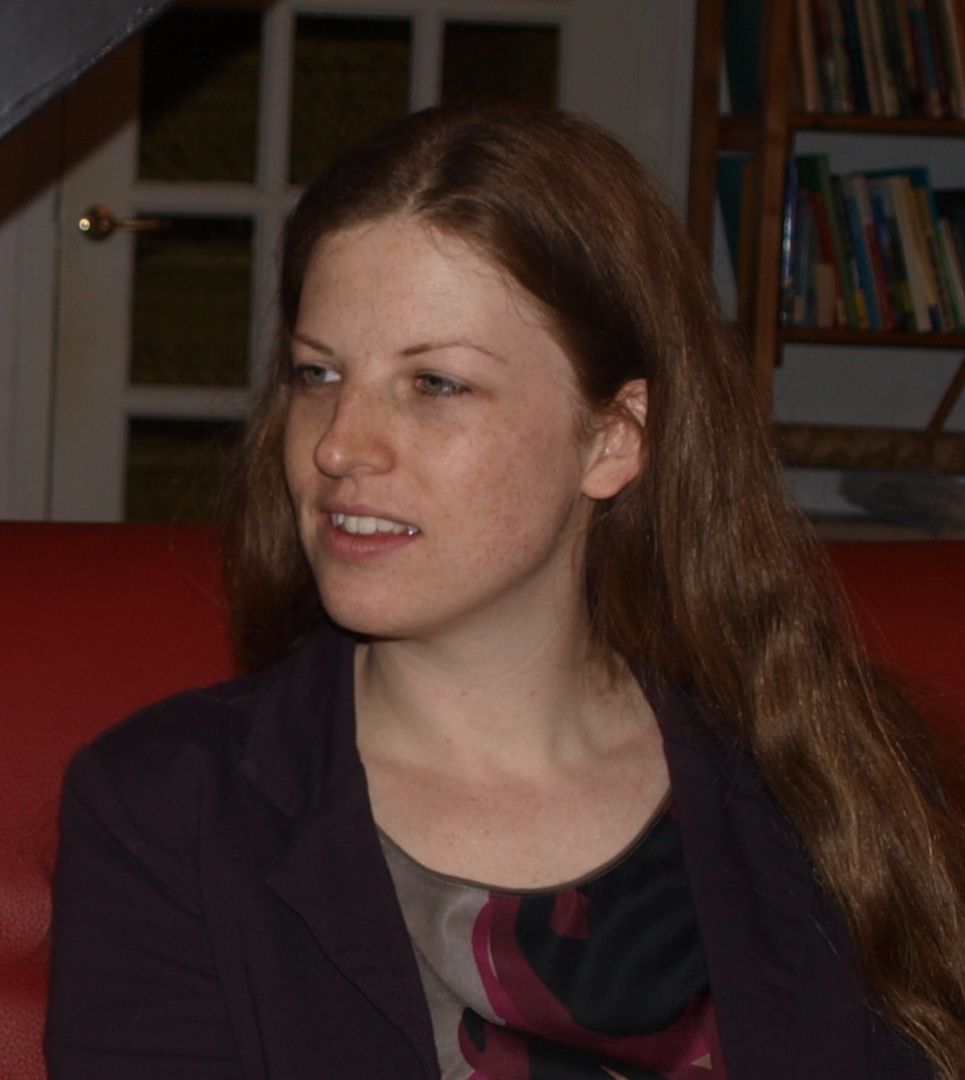
| Affliation |
Forschungszentrum Jülich |
|---|---|
|
About yourself /Message |
I am a postdoc in the group of Markus Diesmann at Research Center Jülich. My scientific background is rather broad, with a BSc with a focus on biology and a Master in theoretical physics in Utrecht followed by a PhD in mean-field brain modeling and the analysis of EEG spectra at the University of Sydney. In recent years I have investigated relationships between structure and dynamics of large-scale networks of simple neurons using both simulations and theory. I hope that I will be able to be of help with scientific (and other) queries. |
|
Expertise |
I am `the NEST tutor' for this course, so come to me if you have questions about NEST or want to implement a network of point or few-compartment neurons. Besides NEST, I am familiar with PyNN and Python, and in the past I used various other tools including Matlab and Mathematica. I also have quite a bit of experience with statistical analysis, and a decent overview over the neuroscience literature, for instance regarding sensory cortices, oscillations, and the theory of randomly connected networks. |
Fleur Zeldenrust
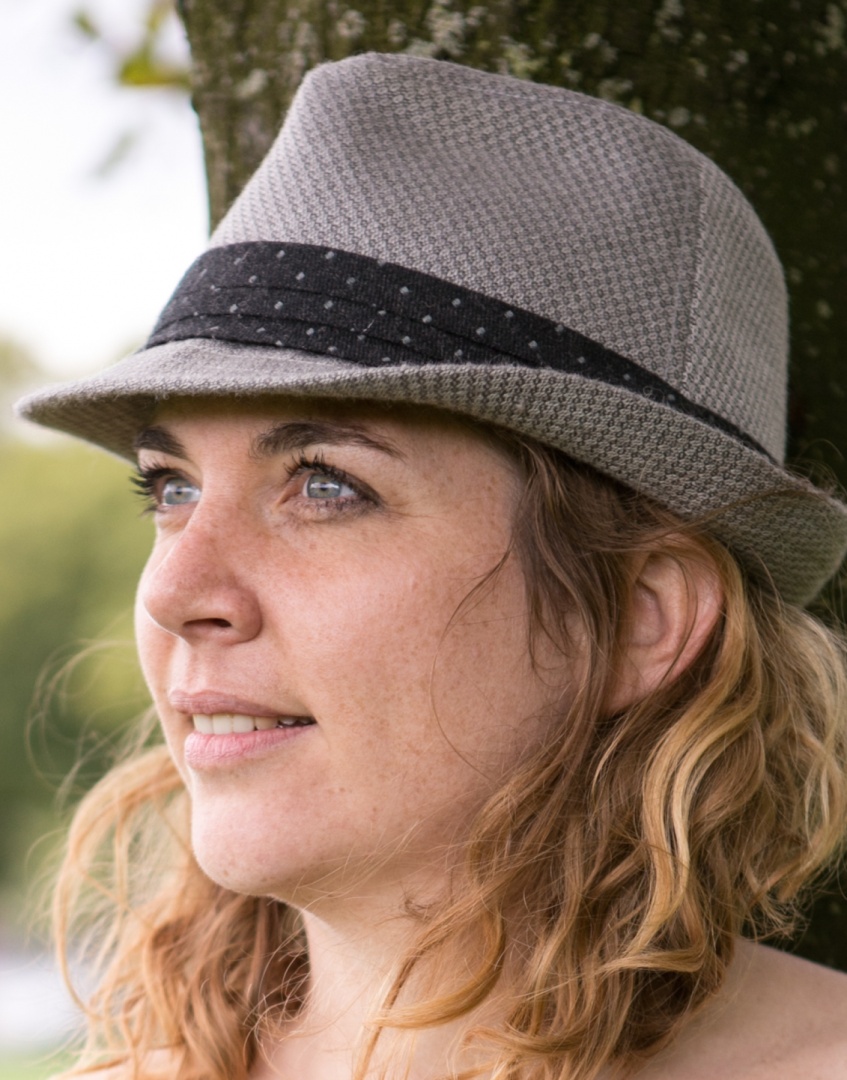
| Affliation |
University of Amsterdam |
|---|---|
|
About yourself /Message |
Scientific interests: I have a background in both physics and neuroscience. I am interested in the interactions between biophysical and functional properties of neurons and networks: what constraints do biophysical properties put on the information processing? And how are these properties shaped by what type of information a system processes? |
|
Expertise |
Scientific expertise: I have worked on neural network models on several levels of abstraction, from filter-networks to two-compartment conductance-based neuronmodels. I also have experience in signal processing and working with experimental (patch-clamp) data, such as spectral analysis and reverse correlation. Software expertise: Matlab, python/brian, xpp Papers: B.S. Gutkin and F. Zeldenrust. Spike-frequency adaptation, Scholarpedia, 9(2): 30643, 2014. F. Zeldenrust, S. Denève and B.S. Gutkin. Matching encoding and decoding with spiking neurons, Cosyne Abstracts), Salt Lake City USA, 2013. F. Zeldenrust, P.J.P. Chameau and W.J. Wadman. Reliability of spike and burst firing in thalamocortical relay cells, Journal of Computational Neuroscience, 2013. F. Zeldenrust and W.J. Wadman. Modulation of spike and burst rate in a minimal neuronal circuit with feed-forward inhibition, Neural Networks, 40:1–17, 2013. F. Zeldenrust and W.J. Wadman. Two forms of feedback inhibition determine the dynamical state of a small hippocampal network, Neural Networks, 22:1139–1158, 2009. |
Participants
Tara Arbab
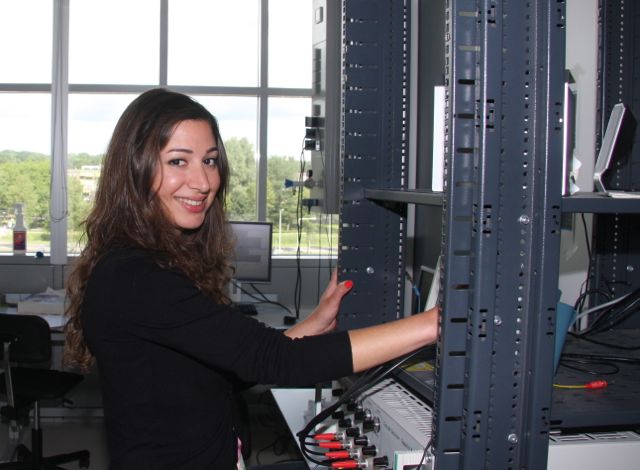
| Affliation |
SILS Center for Neuroscience, University of Amsterdam |
|---|---|
|
About yourself /Message |
I am a PhD student at the University of Amsterdam probing the neural mechanisms that underlie spatial memory in a mouse model of Fragile X syndrome, through in vivo hippocampal tetrode recordings. I am excited to gain practical experience in computational neuroscience at OCNC, to apply a computational approach to my experimental observations, and advance my understanding of the data. I am also very much looking forward to getting to know my fellow students and staff in such a stimulating environment! |
Jacopo Bono
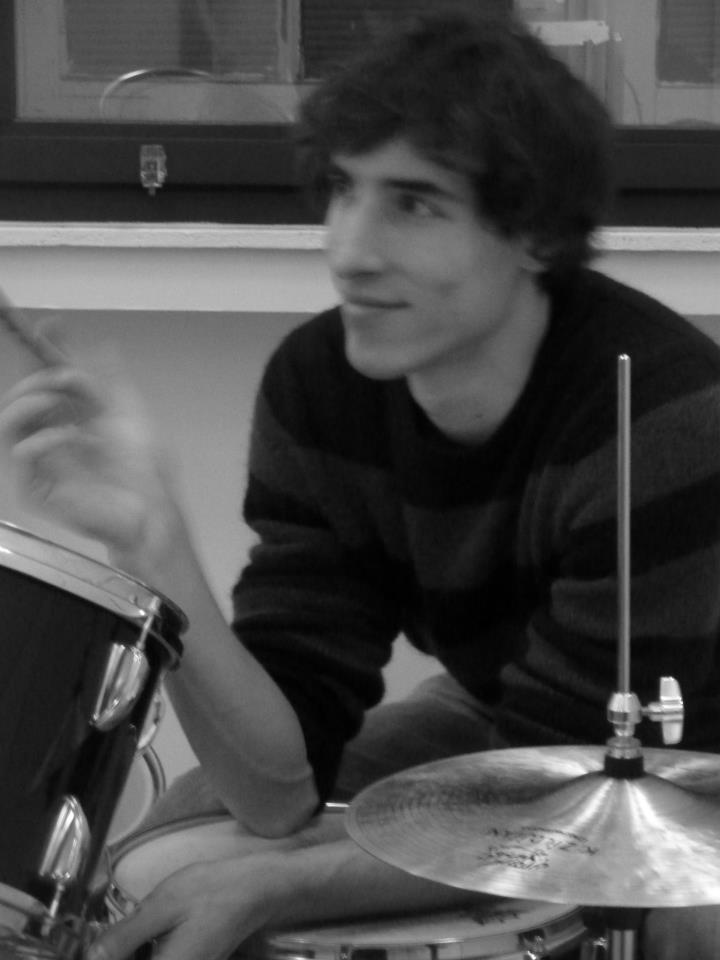
| Affliation |
Imperial College London |
|---|---|
|
About yourself /Message |
I am a PhD student in the Computational Neuroscience Lab of dr. Claudia Clopath. I studied physics before entering computational neuroscience, and now I work on synaptic plasticity, mainly in single cell and small network models of spiking neurons. I love theoretical work, but the interaction with experimentalists is essential. I am looking forward to meet this group of people with different backgrounds and research topics! |
Torsten Bullmann
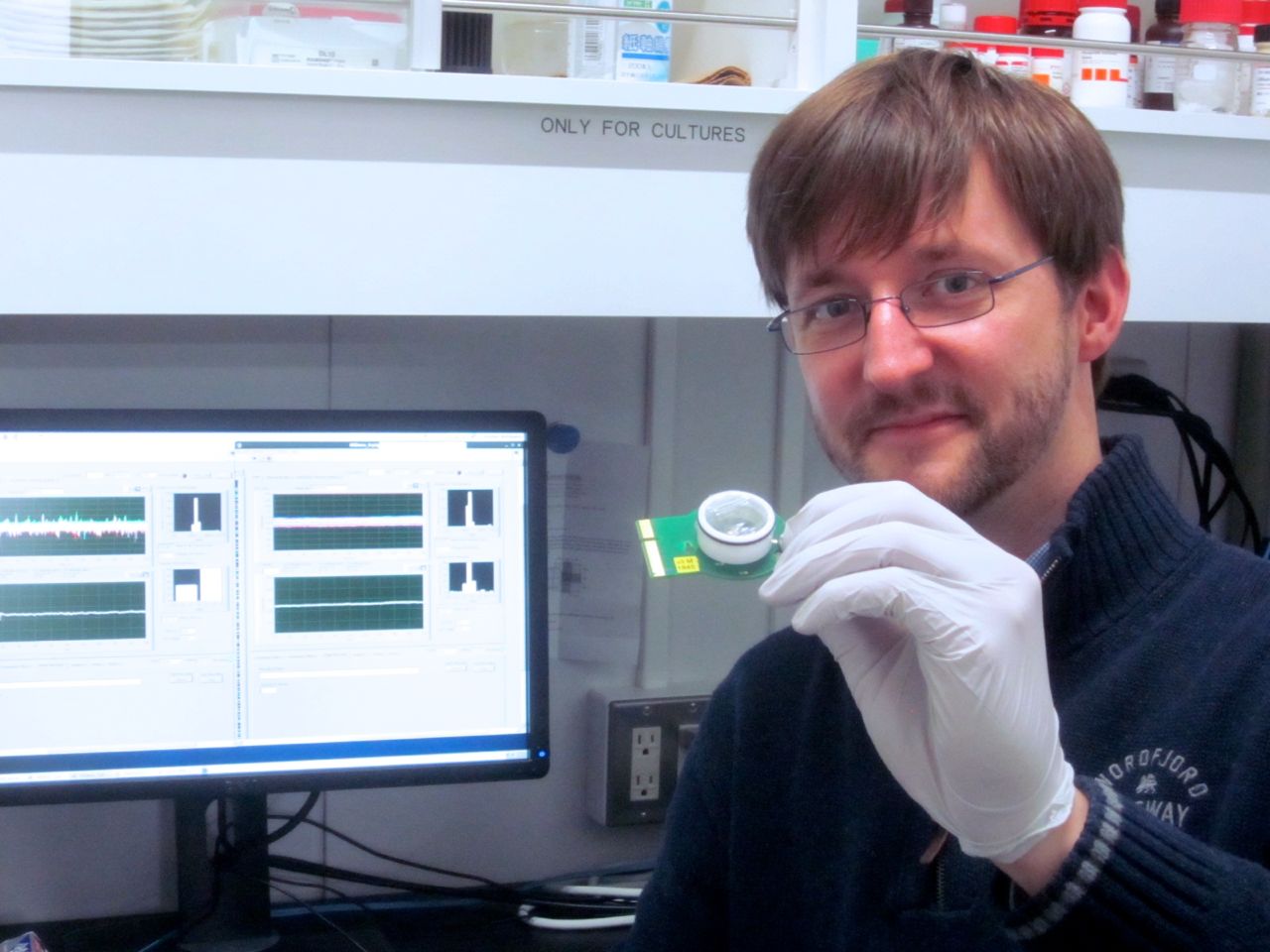
| Affliation |
RIKEN QBiC |
|---|---|
|
About yourself /Message |
I am interested in the effects of temperature on neuronal function and animal behavior. Previously I worked on hibernating hamsters. During hibernation Alzheimer's disease-like phosphorylation of tau protein associated with synapse regression as well as loss of memory traces have been reported, although the precise relationship between these events is unknown. Currently, I am a post doc in the Frey Initiative Research Unit at RIKEN Quantitative Biology Center, were I combine electrophysiology (using high-density microelectrode arrays), imaging, and genetic methods to study electrical activity and synapse dynamics during cooling. I want to build a model of tau function within the synapse. Furthermore I would like to know more about the tools and scope of computational neurosciences, from molecular level, to synapses, to networks and whole organisms. |
Parul Chachra
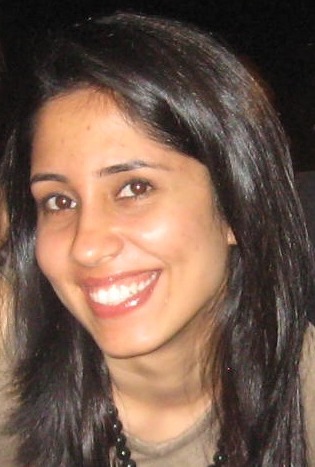
| Affliation |
Tata Institute of Fundamental Research, Mumbai, India |
|---|---|
|
About yourself /Message |
I am a final year PhD student and my research focusses at elucidating the mechanism of the pro-depressive and anxiogenic effects associated with early life administration of Prozac, a clinically used antidepressant. I have been using pharmacogenetic, behavioral and molecular tools for pursuing my research interests. As my background is purely experimental, I would like to strengthen my computational skills to get equipped to answer questions dealing with reward-based decision making and decision making under risk, a field in which I have developed huge interest over the years. |
Manisha Chawla
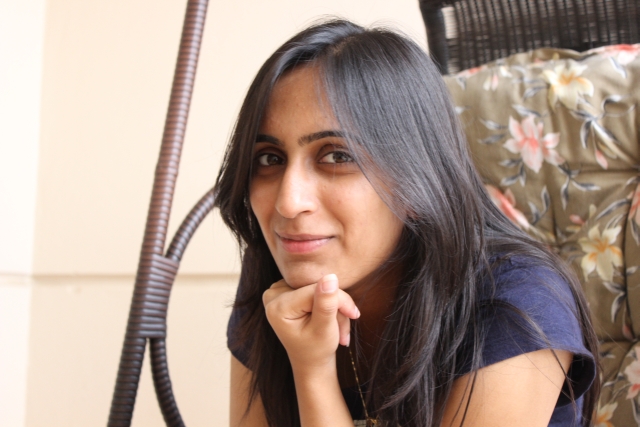
| Affliation |
Indian Institute of Technology Gandhinagar |
|---|---|
|
About yourself /Message |
I am currently a PhD student at the Centre for Cognitive Science, Indian Institute of Technology Gandhinagar. My doctoral research topic is focused on the convergence of perceptual, value based, and social decision making using behavioural and computational approaches. I study subjective valuation by investigating how an individual provided with sequentially repeated choices modulate their valuations of the available alternatives, i.e., choosing and staying with the outcome from the previous choice or switching to the other alternative. In an attempt to explain participant's choice behaviour (e.g. modulation of choices in a perceptual random dot motion task due to the effects of stimulus and choice values), I also use computational models (e.g. reinforcement learning, bayesian and drift diffusion models) to further model participants’ choices. |
Philip Coen

| Affliation |
Princeton University/University College London |
|---|---|
|
About yourself /Message |
I am a recent graduate of the Neuroscience PhD program at Princeton University and am currently finishing off a project in the states before starting a post doctoral position with Matteo Carandini and Kenneth Harris in University College London. My interests center around the integration of naturalistic sensory stimuli to inform behavior, and for my PhD I focused on the quantification of natural courtship behavior in Drosophila. Outside the lab, my passions revolve around traveling, movies, and the occasional game of poker. I look forward to meeting everyone in Okinawa! |
Ellese Cotterill
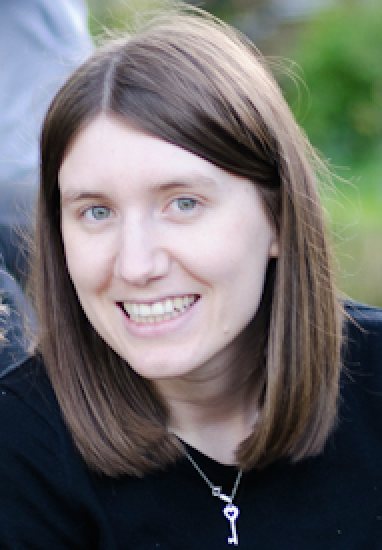
| Affliation |
University of Cambridge |
|---|---|
|
About yourself /Message |
I’m a PhD student in the applied mathematics department at Cambridge University. I am interested in studying spontaneous activity patterns in the developing nervous system. Using both theoretical models and experimental data analysis, my work focuses on developing a quantitative description of the dynamical behaviour of neuronal networks during development, and investigating the mechanisms underlying these activity patterns. |
Mingwen Dong
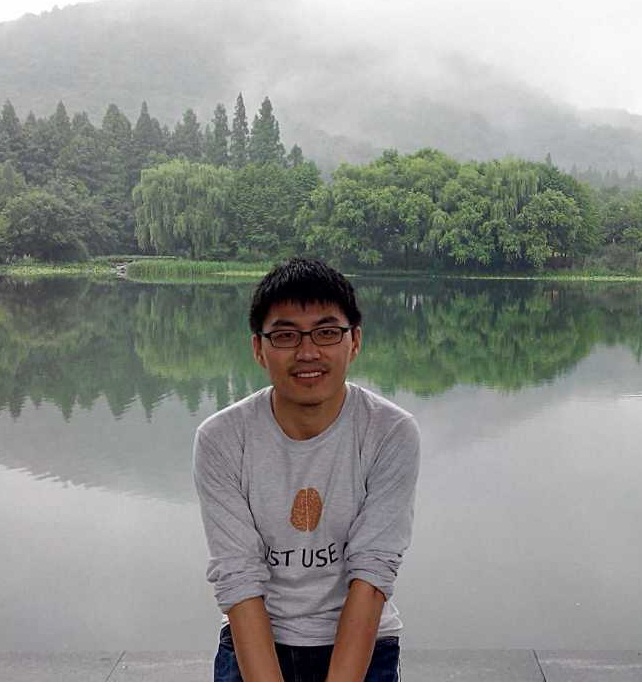
| Affliation |
Psychology Department, Rutgers University |
|---|---|
|
About yourself /Message |
Hello, I'm a PHD student in Vicario's lab at Rutgers, where we study auditory processing using songbirds as model animal. What I'm interested is how the nervous system detects oddball stimuli within continuous ongoing auditory stream. I believe OCNC would give me a chance to study the question from a more computational perspective and let me understand the experimental results deeper. Looking forward to meeting u in Okinawa! Cheers, Ming |
Christian Laut Ebbesen

| Affliation |
Berlin School of Mind & Brain / BCCN Berlin |
|---|---|
|
About yourself /Message |
I'm a PhD student in the lab of Michael Brecht at the BCCN Berlin. My work focusses on structure/function relationships in the para-hippocampal grid cell system and in the coding of social facial touch in the rat vibrissa motor cortex. |
Claire Hales
| Affliation |
University of Bristol |
|---|---|
|
About yourself /Message |
I am a PhD student on the Wellcome Trust Neural Dynamics programme. I am using a rodent behavioural model combined with computational modelling to study how affective bias alters interpretation of ambiguous information in order to investigate the neural mechanisms that underlie cognitive changes that occur in mood disorders. |
David Halpern
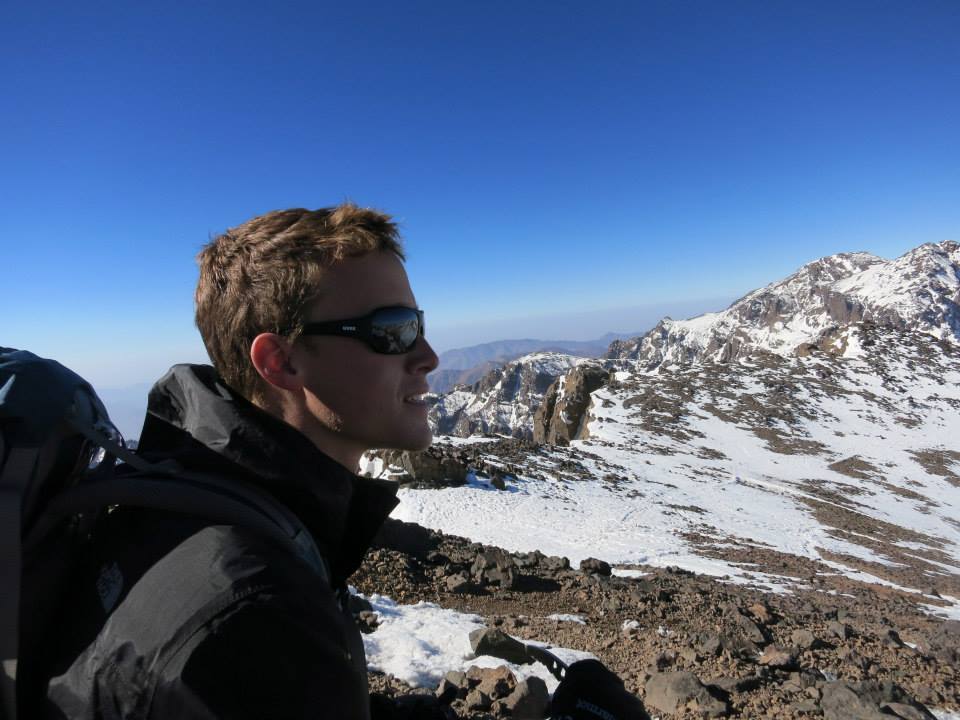
| Affliation |
New York University |
|---|---|
|
About yourself /Message |
I am a PhD student in the department of Psychology at New York University working with Todd Gureckis and Wei Ji Ma. I am interested in the process of reasoning which includes generating hypotheses and performing inference with these hypotheses. I try to study this at several levels of analysis so I am currently investigating approximate Bayesian inference and how it could be implemented in population codes, population codes for higher-level cognitive tasks and cognitive-level processes for constructive hypothesis generation. |
Katia Harle
| Affliation |
University of California, San Diego (UCSD) |
|---|---|
|
About yourself /Message |
I am a postdoctoral fellow at the University of California San Diego with a background in applied physics, cognitive neuroscience and neuropsychology. My research is devoted to understanding how emotion, in particular negative affect, is integrated into decision-making, and how such cognitive processes break down in individuals with psychiatric illness such as depression and substance abuse. To do so, I use a combination of computational, brain imaging and neuropsychological methods. Recently, my work has focused on using Bayesian ideal observer models and functional magnetic resonance imaging (fMRI) to investigate the neural representation of affectively biased expectations and how these neurocognitive processes are affected in individuals with stimulant addiction. |
Bettina Hein
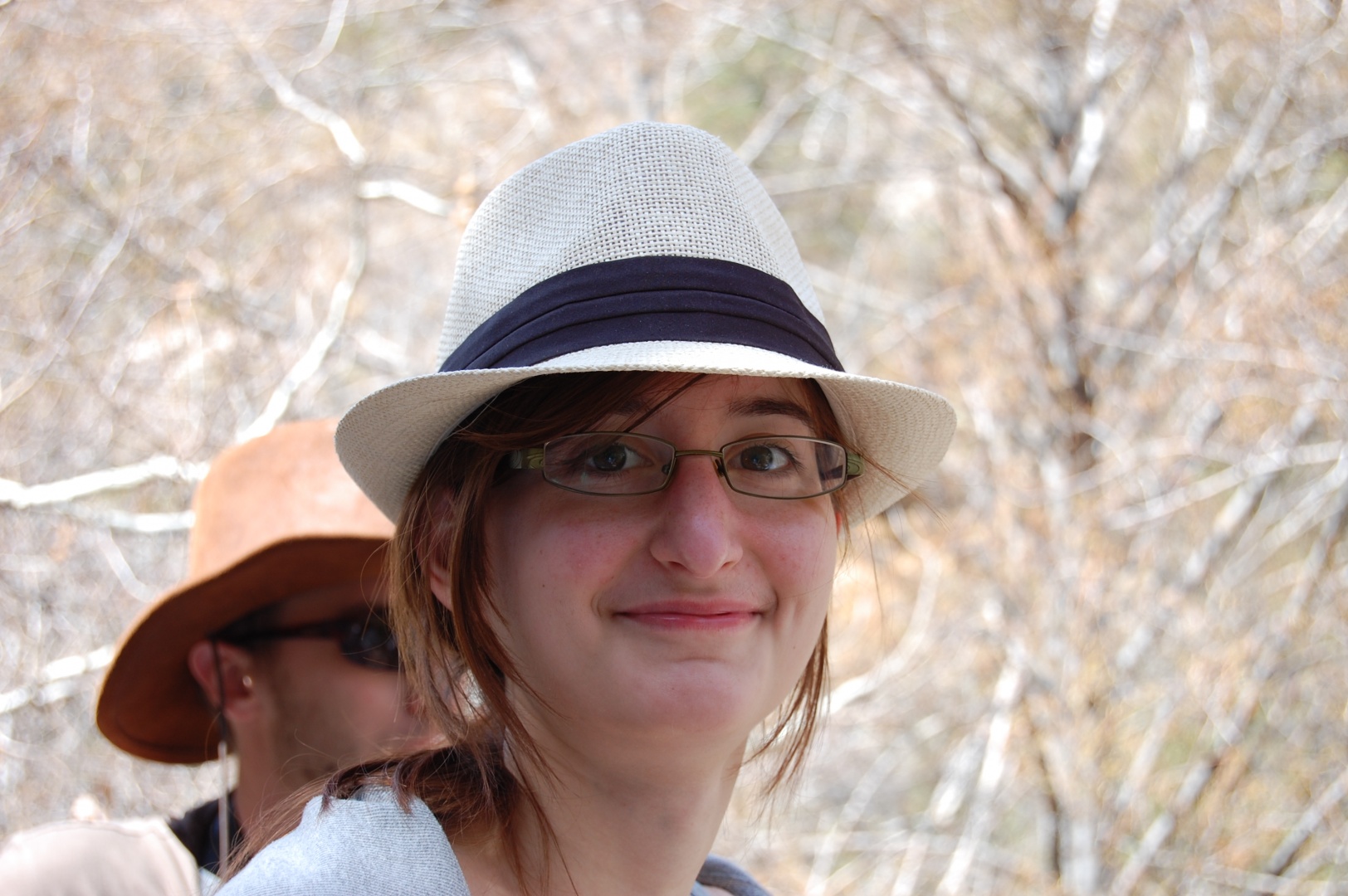
| Affliation |
Frankfurt Instititue of Advanced Studies |
|---|---|
|
About yourself /Message |
I am a PhD student working on analysing experimental data and modeling. I am interested in how the functional architecture of the cortex is developing, specifically what role spontaneous activity is playing in cortical maturation. I am looking forward to meeting you all! |
Naoki Hiratani
| Affliation |
The University of Tokyo/RIKEN Brain Science Institute |
|---|---|
|
About yourself /Message |
I am a graduate student at University of Tokyo. I am currently doing my PhD study in Laboratory for Neural Circuit Theory in RIKEN Brain Science Institute under the supervision of Dr. Tomoki Fukai. My current interest is computation and learning in neural circuits, especially how biological mechanisms of plasticity provide efficient learning schemes for various computation. |
Derek Howard
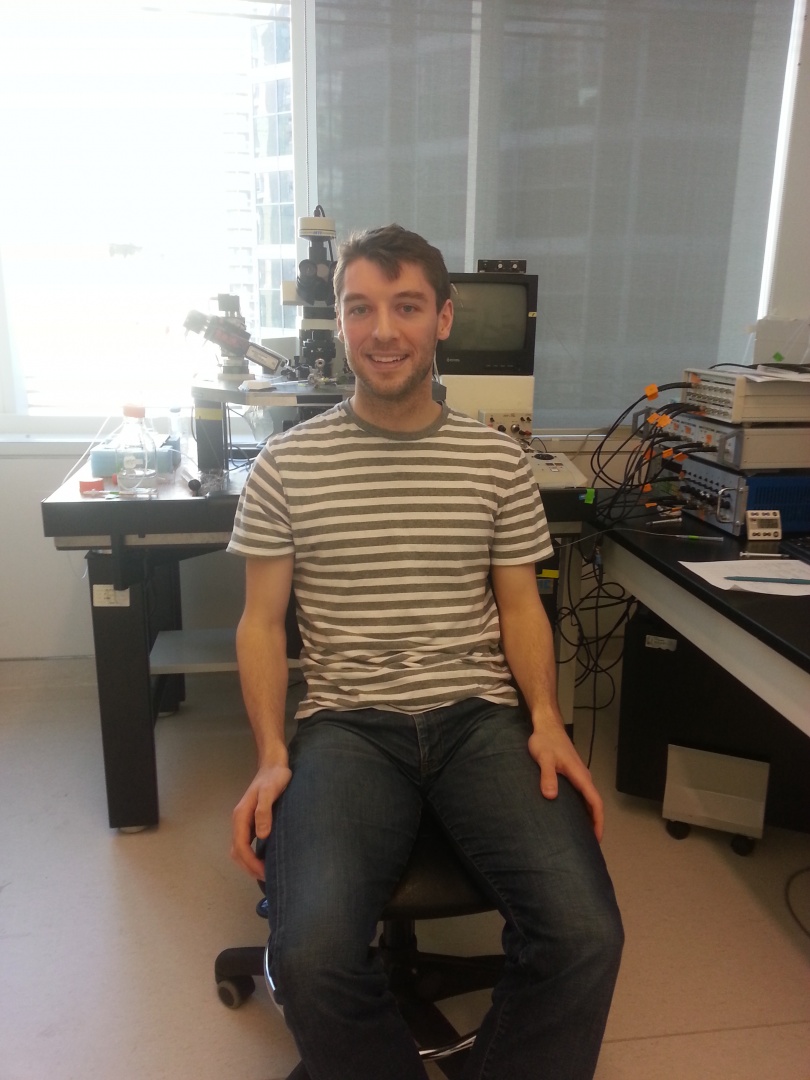
| Affliation |
Hospital for Sick Children |
|---|---|
|
About yourself /Message |
I am a PhD student at the Hospital for Sick Children in Toronto. In my current project, I study the developmental regulation of neuronal intrinsic properties using in-vitro slice electrophysiology in the auditory brainstem. I'm looking forward to combining theoretical and computational methods along with my current experimental approaches. |
Lars Hunger
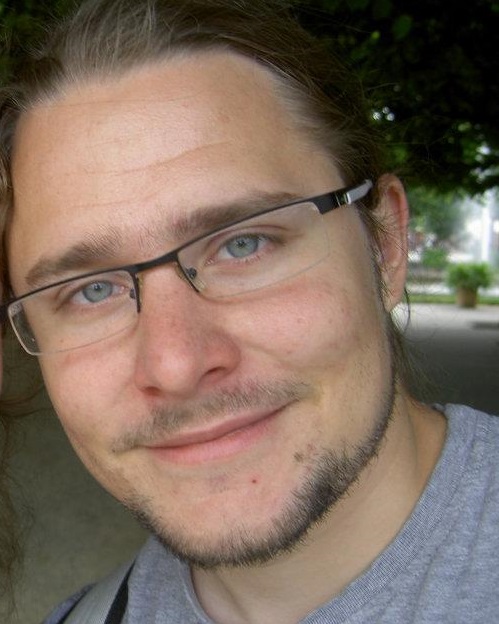
| Affliation |
Brainlinks-Braintools, Freiburg, Germany |
|---|---|
|
About yourself /Message |
I am currently a PhD student at the Bernstein Center Freiburg. My Background is in astrophysics but I recently switched fields to Computational Neuroscience where I research the Dopaminergic modulation of the striatal network. I am looking forward to meeting you all in Okinawa! |
Ivana Kajić
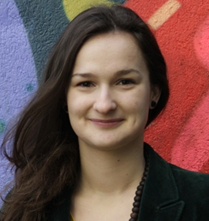
| Affliation |
Plymouth University, UK |
|---|---|
|
About yourself /Message |
I am a first year PhD student in computational neuroscience working with Thomas Wennekers at Plymouth University in England. I am interested in brain processes related to higher-order cognition such as problem solving, attention, learning and memory. To understand our cognition better, I am developing models of cognitive functions using biologically constrained neural networks. I am also interested in how and why biological neurons and their properties make us humans better (or worse) in some tasks compared to approaches in artificial intelligence. My MSc is in computational neuroscience from BCCN Berlin and BSc in computer science from University of Zagreb. |
Sander Keemink

| Affliation |
University of Edinburgh |
|---|---|
|
About yourself /Message |
I'm originally from the Netherlands, with a background in general engineering (with from my master on more focus on neuroscience). I am now doing my PhD at the University of Edinburgh, looking into the theoretical underpinnings and function of contextual modulations in the visual cortex. Looking forward to meeting and working with all of you in Okinawa! |
Veronika Koren
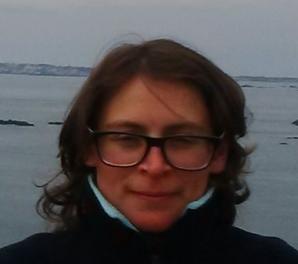
| Affliation |
Technical University Berlin |
|---|---|
|
About yourself /Message |
I am a first year PhD from Technical University in Berlin. I am studying cortical microcircuits. I am trying to gain a better insight on how neurons interact within the network and how through this interaction they encode information that is relevant to animal's behaviour. I am particularly interested in understanding how come populations of neurons are able to encode the information reliably while responses of single neurons are strikingly variable. |
Elena Kreutzer
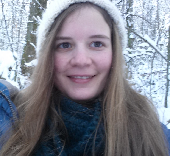
| Affliation |
Institute for Physiology, University of Bern, Switzerland |
|---|---|
|
About yourself /Message |
I am a PhD-student in the Computational Neuroscience group of Walter Senn at the University of Bern. My main research interests are mathematical approchaches to learning and memory. I am especially interested in how biological rules for learning with synaptic plasticity can be described by Gradient Descent algorithms, and how some these algorithms are related to internal properties of the neuron. Looking forward to see you all soon on Okinawa! |
Ori Maoz
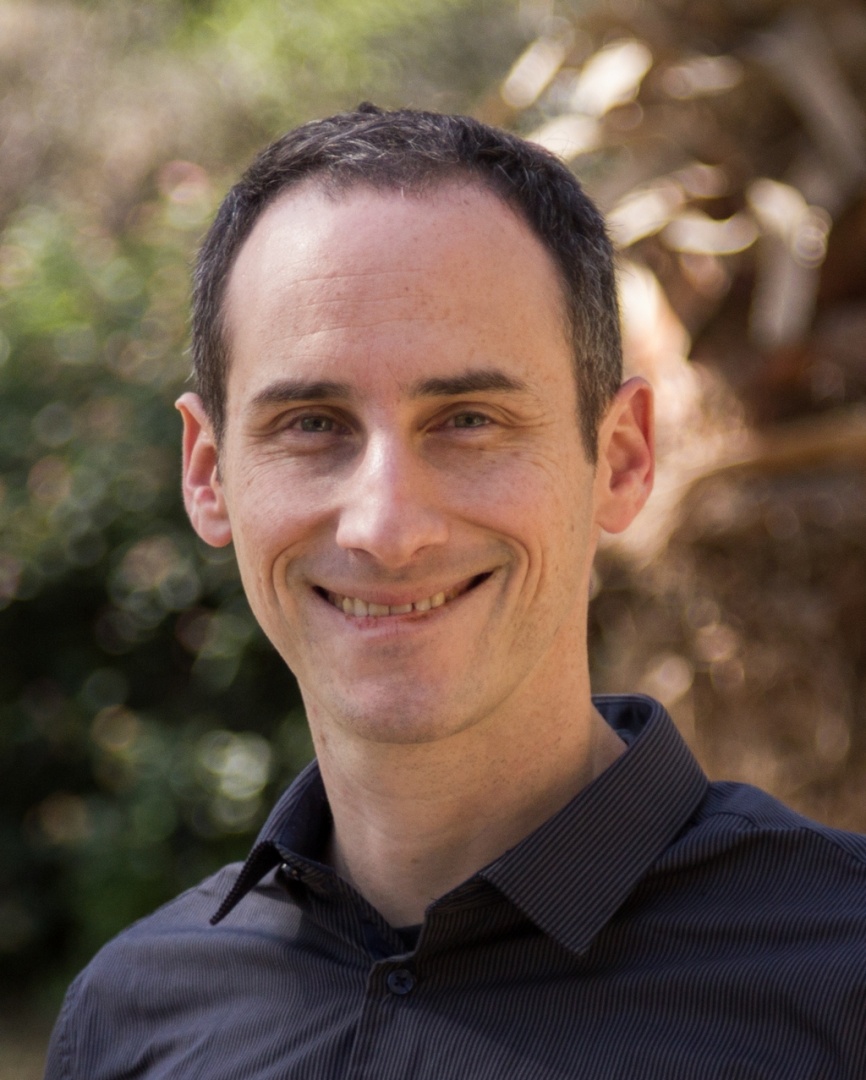
| Affliation |
Weizmann Institute of Science |
|---|---|
|
About yourself /Message |
I am a PhD student at the Weizmann Institute of Science. My background is in computer sciences and cognitive sciences, and my current study focuses on inference and learning in networks of spiking neurons. |
Sara Pinto dos Santos Matias
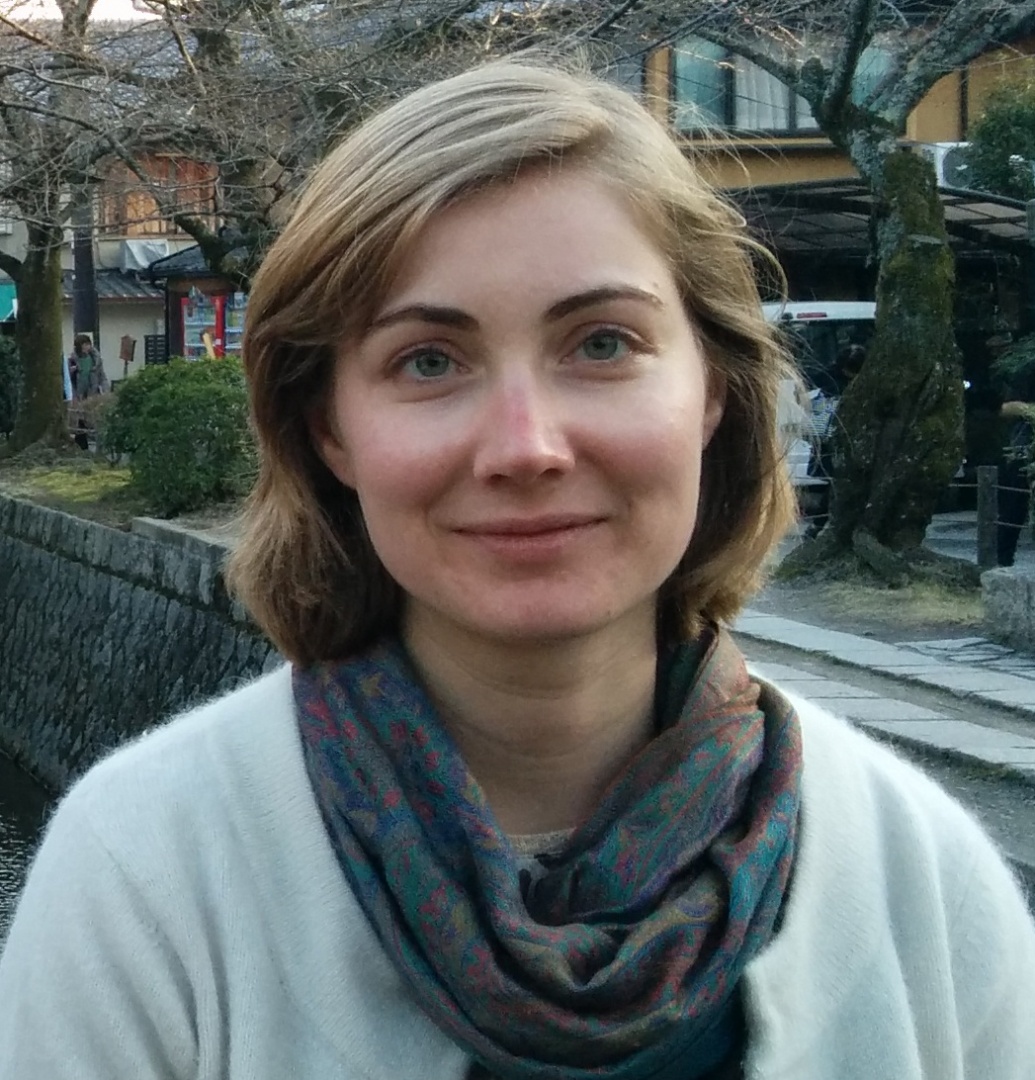
| Affliation |
Champalimaud Neuroscience Programme, Champalimaud Center for the Unknown |
|---|---|
|
About yourself /Message |
I am a Bioengineering PhD student doing research in systems neuroscience. I am interested in understanding the role of serotonin in behavior, in particular when behavior has to be adapted to new environmental conditions. Based on experimental data I collected, I am now interested in learning about how I can model neuromodulators' role in behavior. |
Rebecca Audrey Mease
| Affliation |
Technische Universitaet Muenchen |
|---|---|
|
About yourself /Message |
My research to date has focused on single neurons, and more recently, the interaction between internal brain signals and incoming sensory signals. I have a particular interest in how the interaction of ion channels supports sophisticated neural functions such as adaptation and single neuron feature selectivity, and have pursued this topic in a number of different in vitro preparations. I am currently working in the thalamocortical system, studying the effects of cortical feedback on thalamic processing of sensory signals in vivo, and how the intrinsic properties of thalamic neurons interact with the statistics of cortical and sensory input. I am specifically focused on understanding how the thalamus acts to process information, rather than simply relay signals to the cortex, and how thalamic neurons integrate and encode information from synaptic inputs from the sensory periphery and the cortex. |
Daisuke Miyamoto
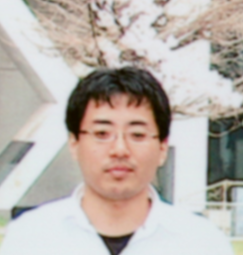
| Affliation |
The university of Tokyo |
|---|---|
|
About yourself /Message |
I am a PhD student in Kanzaki-Laboratory ,The University of Tokyo. My research intersets is re-constructing and simulating neural circuit based on morphological detailed neuron model. Especially, I'm working on accelerate NEURON simulator on K computer (RIKEN). A goal of this work is to achieve real-time simulation of 10,000 neurons each including about 10,000 compartments. |
Camilla Nord
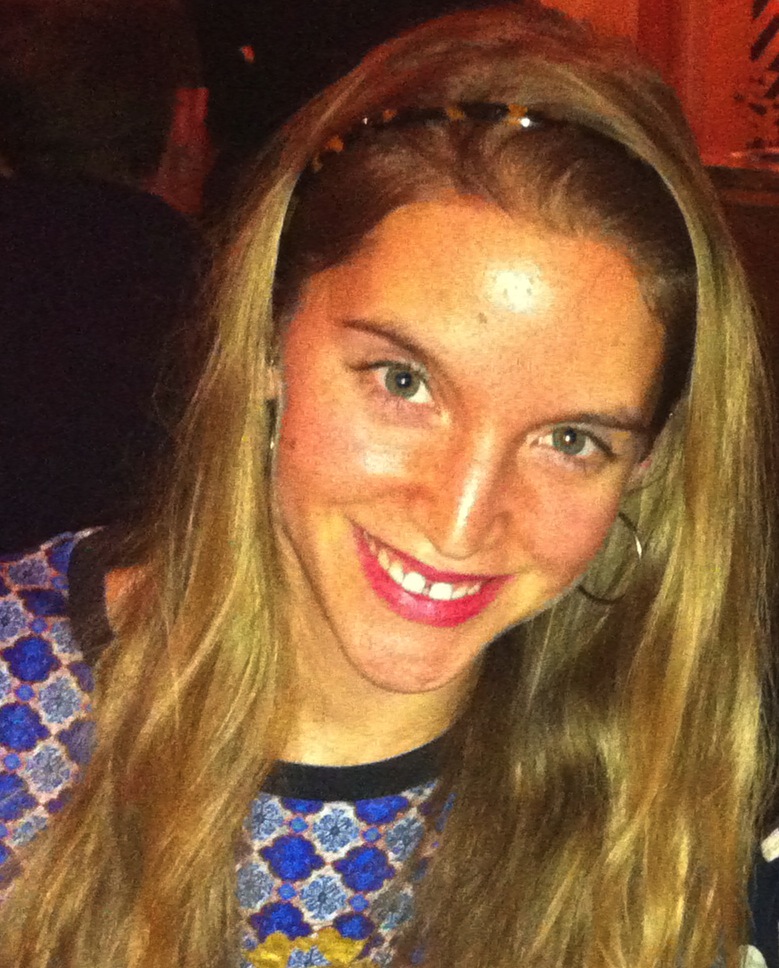
| Affliation |
Institute of Cognitive Neuroscience, University College London |
|---|---|
|
About yourself /Message |
I'm a PhD student researching the neural mechanisms that underlie neuropsychiatric disorders. My particular interest is in developing clinically useful mathematical models that predict diagnosis and treatment in psychiatry. I'm currently running a clinical trial that combines neuroimaging (fMRI), brain stimulation, and cognitive measures in depressed patients. As a cognitive neuroscientist, I'm really excited to learn and work on computational modelling in Okinawa, and hear about everyone else's research! |
Torben Ott
| Affliation |
Institute of Neurobiology, University of Tuebingen |
|---|---|
|
About yourself /Message |
I'm studying (PhD, 4th year) how dopamine modulates working memory and decision-making processes in the primate prefrontal cortex. I record single neuron data from monkeys while stimulating and blocking specific dopamine receptors. Based on that data, I hope to model dopamine functions in prefrontal network models. I have a background in biology, mathematics, and philosophy. I'm looking forward to meeting you all! |
Vani Rajendran

| Affliation |
University of Oxford |
|---|---|
|
About yourself /Message |
I'm a PhD student in the Auditory Neuroscience Group in Oxford, where I'm interested in understanding how neural coding of temporal aspects of sound gives rise to our perception of rhythms in speech and music. But really, I am just having fun combining the two things that interest me the most: music and the brain. |
Nergis Tomen
| Affliation |
University of Bremen |
|---|---|
|
About yourself /Message |
I am a PhD student in the University of Bremen, Germany. I am a computational neuroscientist and I work on models of selective visual attention, information processing and signal gating in the visual system, critical dynamics/phase transitions in neural networks and contour integration. I believe that a strong collaboration between theory and electrophysiological and psychophysical experiments is of crucial importance for understanding vision. |
Daniel Udvary
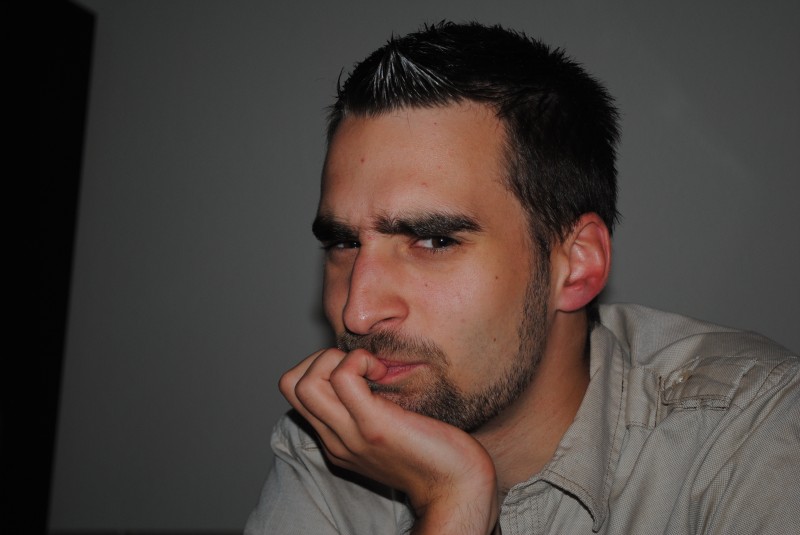
| Affliation |
Max Planck Institute for Biological Cybernetics |
|---|---|
|
About yourself /Message |
I am interested in understanding the mechanistic principles that underlie behavioral responses. To unravel the neural basis of a behaviorally relevant sensory percept, I started a PhD in September 2014 in the field of Computational Neuroanatomy. My PhD research aims to uncover how biophysical properties, and anatomically/functionally synaptic input patterns, especially inhibitory ones, encode the sensory percept of whisking during object localization in rats. I hope that my research will help to facilitate formulating rules that may be transferred to other sensory modalities. Besides my interest in understanding how the brain 'works', I am really fascinated by brain-computer interfaces. |
Gido van de Van
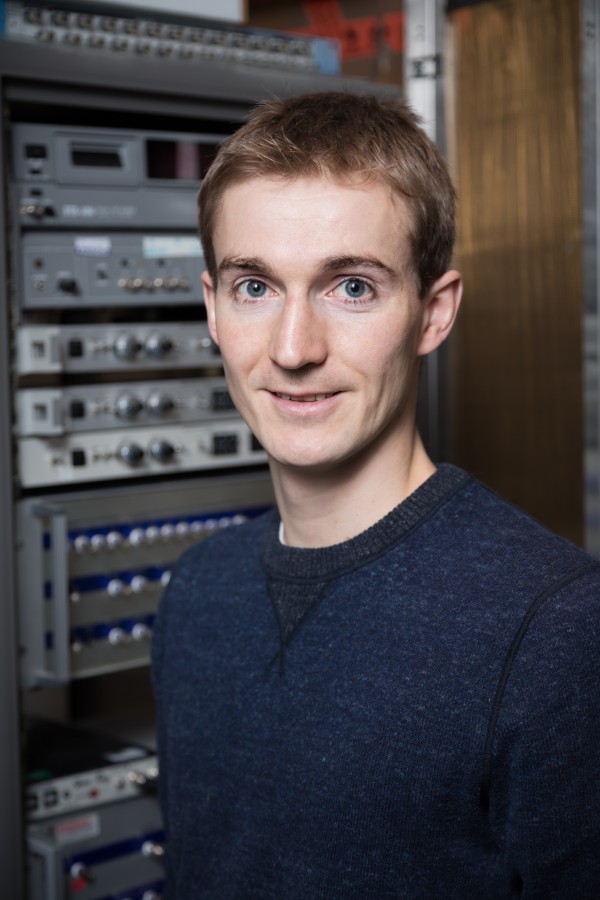
| Affliation |
University of Oxford (MRC Brain Network Dynamics Unit) |
|---|---|
|
About yourself /Message |
Hello everyone! For my current PhD-research, i'm studying the neuronal dynamics underlying memory processes in the hippocampal formation. I perform large-scale extracellular recordings (using tetrodes) in freely-moving mice, combined with closed-loop optogenetic intervention. Having a background in Statistics, a large part of my studies is devoted to the analysis of the resulting complex multi-dimensional data. At OCNC i hope to get introduced to computational modelling, and in particular to learn to generate simulated hippocampal recordings. |
Tugce Yildizoglu

| Affliation |
Max Planck Institute of Neurobiology |
|---|---|
|
About yourself /Message |
Hi all I am first year phd student working on motion perception of zebrafish. Yet my neuroscientific curiosity is not limited to that. I always love to learn and discuss about interesting topics with others sharing my interest, which i hope will be the case in Okinawa. So looking forward to meeting you all! |
Chen Yin
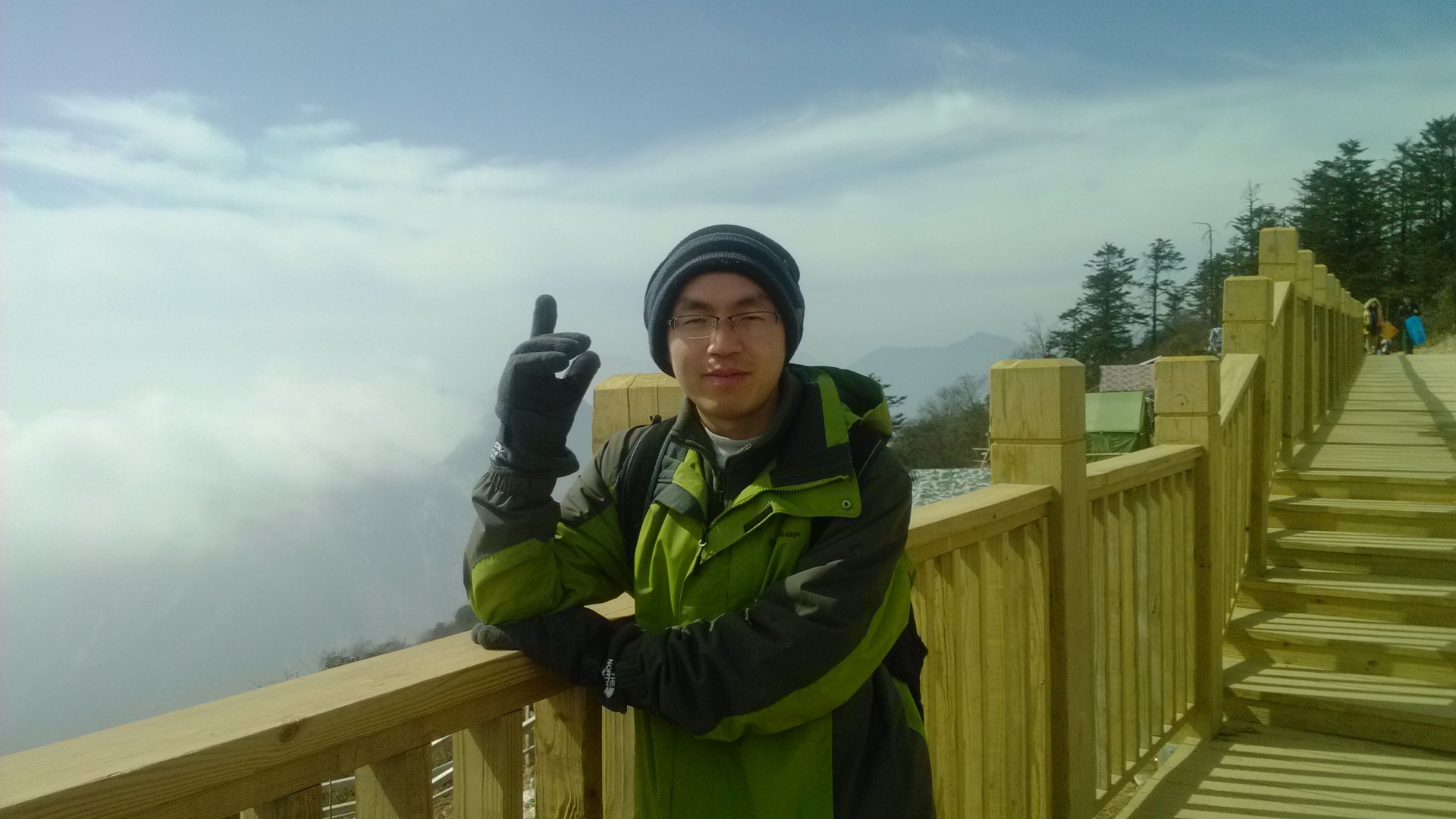
| Affliation |
Institute of Neuroscience,Chinese Academy of Sciences |
|---|---|
|
About yourself /Message |
I am a graduate student from Dr. Julin Du lab on visual processing and neuromodulation with larval zebrafish. I'm from Sichuan, a very beautiful province with quite many natural and cultural landscapes in China. I'm interested in cognitive neuroscience, currently expecting to learn more on computational neuroscience for combination of emprical and computational approaches. About hobbies, I like sports, especially football and music, especially Bossa Nova. I'm looking forward to being in Okinawa, to meeting you, to learning more about computational neuroscience. Best Chen |



